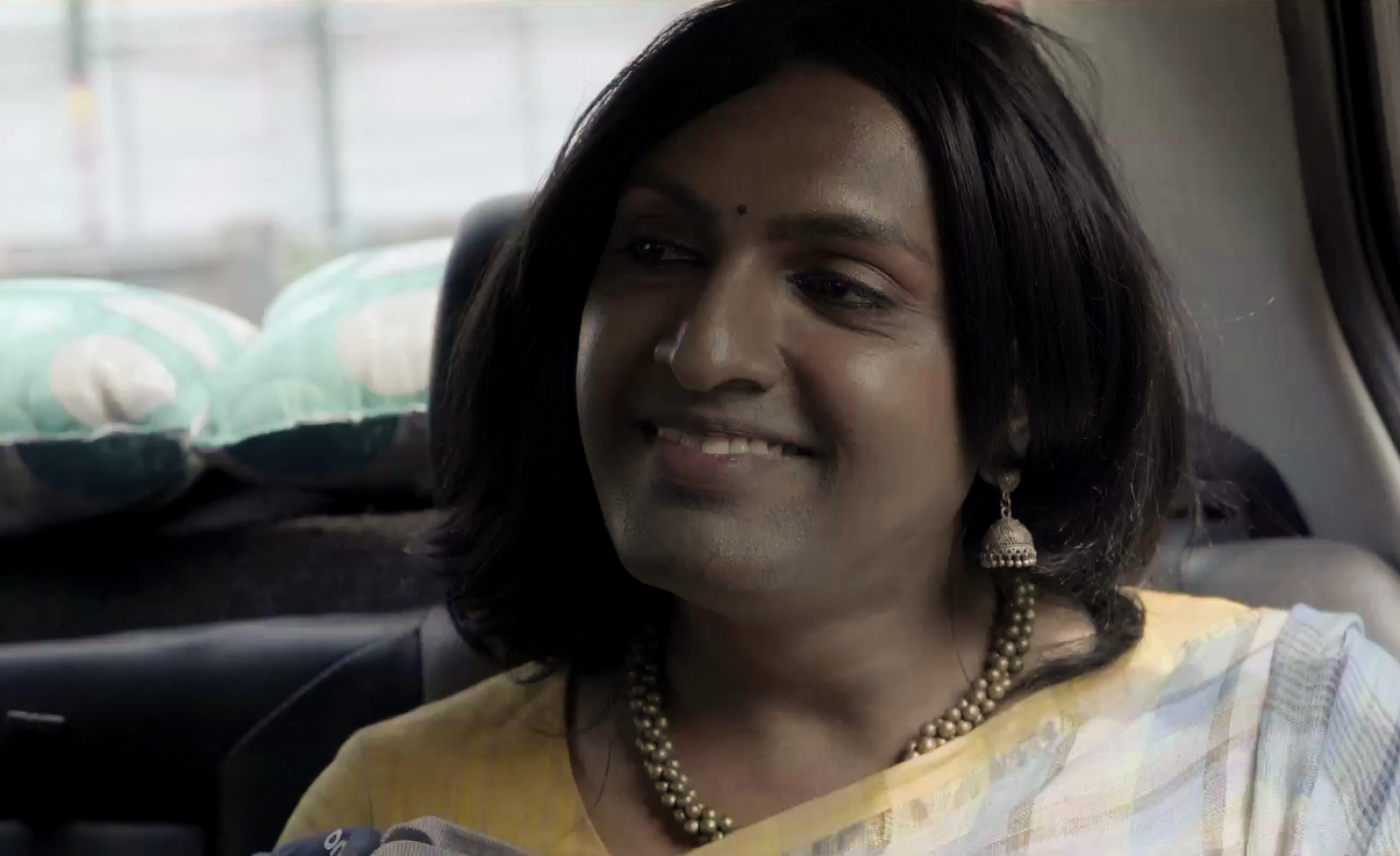The first-time filmmaker spoke about what it means for him to have his debut film screened at the 24th Kolkata International Film Festival.
Wanted to make a film on the theme of fragmentation: Ratheesh Ravindran on Pixelia
Kolkata - 15 Nov 2018 23:01 IST


Sukhpreet Kahlon
Ratheesh Ravindran has had a dream debut with his film Pixelia being premiered at the 24th Kolkata International Film Festival in the Indian Competition section.
The film explores the journey of Kumar, a man in his 30s who quits his soulless corporate job and becomes an Uber cab driver to devote time to writing his graphic novel, Pixelia.
On one of his trips, he meets Mandakini, a transgender, and the encounter becomes a life-altering one for him. Art meets reality and bleeds into virtual reality as the film explores gender constructs and the dynamic between the creator and his creation.
In an exclusive interview with Cinestaan.com, the filmmaker spoke of his influences and the ideas he wanted to ruminate over in his film. Excerpts:

Your film brings several worlds together — reality, art, virtual reality, the idea of desire and love, gender — there are so many facets to it. Tell me, how did you conceive of this story for your debut film?
There were a lot of things going on in my mind. When Orkut started, I joined Orkut in the first week; when Facebook started, I was one of its first members. So there was a time when I was very addicted to social media. These days I keep a very comfortable distance from all kinds of social media because I feel I got very saturated with all that stuff.
Increasingly, I see that there is huge bombardment of what we can call a Facebook life, an Instagram life. And these days I see that most of my friends are into Instagram posting and putting 'Stories' there. To me, it’s very irritating because I think this is not very inclusive. It’s inclusive on a global level but the inclusiveness stays on a virtual plain. This was one of the ideas here.
In fact, I wanted to make a film on the theme of fragmentation. In the contemporary world, there is a bombardment of images, so nothing stays in your mind on a larger scale. So I think for us, in the contemporary world, reality exists on multiple levels, where augmented reality is one big issue for us — how we will deal with virtual reality. That is why I wanted to create a cyborgian character in the movie, which is very futuristic because I feel that maybe in a few years we will invent sex robots, which are already there in countries like Japan.
In fact, the idea of the cyborg is also part of gender theory and you merge these concerns in your film because you have a transgender character and you have a cyborg who is questioning her gender as well as the power of her creator. So, I was wondering about your comment on art, because there is a Frankensteinian moment where the creation questions its creator.
I got very inspired by Judith Butler’s Gender Trouble, where she talks about gender performativity, and I felt that if we become the creator of a cyborg and assign it a gender, we are, in fact, assigning robots with a female or male name and expecting them to perform like that. So, in a way, the cyborg is asking the filmmaker or the graphic novel creator back 'who are you', because gender is a social construct. That gets linked with the journey of the protagonist who does not have any clue about his identity and is kind of gender queer. I haven’t created a very strong statement about this, it’s subtle. We see him without a girlfriend throughout the film.
There is the imagination of a girlfriend, but there isn’t one actually present.
Yeah, so in that sense the time he spends with the transgender character helps him to realize who he is and that’s why he says that he does not know whether the characters in the graphic novel are undergoing a change or the change is happening to him. I also wanted to reflect on certain questions of gender, the construct of gender, and associated identities. Performativity was definitely one aspect I wanted to explore.
You have got a fantastic platform for your film here at this festival, where the film has not only been premiered but it’s also in the Indian Competition section.
I’m so glad this happened. It’s too much to ask for me. I am from the SRFTI [Satyajit Ray Film and Television Institute], and this is the space where I grew up in a sense. I started attending the Kolkata festival in 2003. I’m so glad KIFF took my film.
What are your hopes for your film? What do you hope will be its life?
I think more people should see it and some justice should be done for my producers. Getting funds for this film was tough. Sharmila [producer] really helped me a lot. This is an independent movie made on a very small budget. All my SRFTI friends have worked on it. Sanal Aman is also from NSD [National School of Drama]. As far as the producers are concerned, they would love to get their money back, so I am hoping to get into international film festivals. There are a lot of possibilities now.
And the digital platforms!
Yes, in fact the film might get pixellated soon! We should save the film before it gets pixellated.
Related topics
Kolkata International Film Festival
